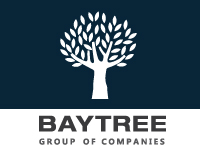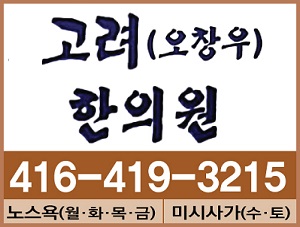CA
ON
스마트 디지탈 프린팅 - 인쇄 및 디자인
전화: 416-909-7070
4065 chesswood dr. Toronto, ON
.jfif)
한인을 위한 KOREAN JOB BANK
전화: 6476245886
4065 Chesswood Drive Toronto, ON
.jpg)
준비된 바이어 그룹 , BAYTREE 이너써클
전화: 416-226-5999
7030 Woodbine Ave. Suite 103 Toronto, ON

싸인건설
전화: 416-909-7070
4065 Chesswood Dr. North York, ON
0.jfif)
럭키 여행사
전화: 416-938-8323
4699 keele st.suite 218 toronto Ontario M3J 2N8 toronto, ON

대형스크린,LED싸인 & 간판 - 대신전광판
전화: 416-909-7070
4065 Chesswood Drive Toronto, ON

한인 시니어 탁구협회
전화: 647-209-8933
1100 Petrolia Rd Toronto, ON
4.jpg)
변호사 정찬수 법률사무소
전화: +82 2-536-1144
서울특별시 서초구 서초동 Toronto, ON
1.jfif)
행복부동산 -수잔정 Home Standards Brickstone Real
전화: 647-866-7878
180 Steeles Ave W Unit 30, Thornhill, ON

조준상 (로열르페이지 한인부동산 대표)
전화: 416-449-7600
1993 Leslie St. Toronto, ON

고려 오창우 한의원
전화: 416-226-2624
77 Finch Ave W #302, North York Toronto, ON

부동산캐나다 (Korean Real Estate Post)
전화: 416-449-5552
1995 Leslie Street Toronto, ON
.jfif)
It would be a place where all the visitors including me share the life stories and experiences through their activities,especially on life as a immigrant.
Why don't you visit my personal blog:
www.lifemeansgo.blogspot.com
Many thanks.
블로그 ( 오늘 방문자 수: 22 전체: 267,585 )
민주화의 선물-새로운 역활을 마음데로,반대로 잃은것도.
lakepurity
2007-12-18
한국의 한 배우를 위해,민주주의는 많은 새로운 역활을 주었다.
박용식 - 한때 군정시대,전두환을 닮았다해서, 배우로서 하루 아침에 모든것을 잃어버린 그는 지금은 이렇게 말합니다."민주화가 된 지금은 얻은게 많습니다. 반면에 잃은것도 있고요"라고 그는 말합니다.
서울 - 배우 박용식은 27년전에 한국에서 가장 잘 나가는 텔레비젼 배우로서, 좋은역,바보스런역,또는 신발 수리공역으로 부터 불교스님역을 해낼때의 대머리를 그대로 지금도 간직하고 있다.
그때 34살이었던 그는,전두환 장군이 군사 쿠테타로 정권을 잡고,다시 억지 선거를 치러 대통령이 되고 그의 동조자들이 철권정권으로 휘어 잡을때까지,영화배우로서 최고의 전성기를 누리고 있었는데,갑자기 그의 외모가 전장군과 닮았다고 해서 방송 출연이 완전 금지 당했었다.
"그가 처음 TV에 등장한것을 보고, 많은 친구들이 나에게 "야 꼭 너를 닮았더라"라고 1979년말에 전두환 장군이 정권을 찬탈할려는 음모를 꾸밀때를 돌이키면서 "아니야 그는 다만 내 대머리를 닮았을뿐이야" 라고 대답했던 기억을 떠올렸다. "전두환은 실제로는15이 연상이었지만, TV에 비쳐진 그의 모습은 둘이 꼭 닮았었읍니다"라고 설명을 덧부친다.
배우 박용식은 1988년,억울하게 감옥에 갇혀있는 수천명의 반 전두환파를 석방하고,대통령직선제를 요구하면서 민주화를 외치면서,격렬한 데모군중요구로,전두환 군사독재정권이 무너질때까지, 아무런 역활을 맡을수 없었다.
오는 수요일 한국인들은,11명의 대통령후보들 가운데서 대통령을 선출하기위해 투표장에 나간다. 투표장 분위기는 전에는 상상할수도 없었던,축제분위기속에서 이루어지는데, 대통령들과 그를 이을 후계자군들 사이에 온갖 비방이 난무하지만, 두려움이 전혀 없이 치러지는,이런 자유스러움이 유권자들을 즐겁게 해주는 분위기이다.
"그때는 한인물을 물리적으로 하느님과 같은 영웅으로 만들어 원하는바 목적을 이룰수 있는 분위기였으나, 지금은 정반대입니다. 종종 우리가 누리고 있는 자유가 방종으로 흘러, 우리가 너무나 많은것을 누리는 결과로 대 혼란이 오지 않을까? 꺼꾸로 걱정을 하기도 합니다. 지금은 당신이 접촉할수 없는 특별한 성역은 존재하지 않습니다." 라고 박용식은 설명합니다. 개떡같은 대한민국의 정치판은 모든사람들의 얘기의 화두가 되곤 하는데,더럽고,원색적이고,거짖으로 얼룩져 있다.
퇴임하는 노무현 대통령은 보수파들로 부터 사상적 공격을 당하고 있고, 또 그와 같은 노선의 자유주의자들 또한 그의 실정에 배반을 당한 기분을 내뱉어,양쪽으로 부터 공격을 당하는 최 선봉에 직면해 있다.
공격 유형을 보면,제일야당 한나라당은 "노정권의 집권동안에 불신과 나르시즘으로 당한 고통이 너무나 커서, 우리는 노대통령의 정신적 건강상태를 매우 심각하게 생각하고 있다" 라고 비난합니다. 이러한 공격에 노통은 지난 6월에 행한 연설에서 정치판과 언론이 우리 민족의 갈길을 가장 앞서서 방해하는 요소들이라고 맏받아 치기도 했읍니다.
2003년도에 노통이 소속돼 있는 우리당이, 보수색채를 띄고있는 언론사의 시장 점유율을 제한하기위한 입법화를 시도 했었으나 실패하고 말았다. 3개의 보수색채가 짙은 대형언론사의 영향력을 줄이려는 시도였던것은 모두가 다아는 내용이었다. 그러나 노통은 그후에도 계속해서 이들 언론사들을 공격하거나 괴롭혔다.
"한국의 민주주의는 아직 초기단계이기 때문에 정치적 언어는 매우 딱딱하고 더러운 말들이 많이 사용되고 있다" 라고 좌파 노정권을 때로는 민족반역자집단이라 표현하고, 매우 보수적이면서 잘 알려진, 전신문사 편집인이었던 조갑제씨는 말합니다. 지금 많은 한국인들이 황제같은 대통령 권위에 두려움없이 도전하는 행위는 건강한 민주주의가 살아있는 증거라고 보기에, 거침없이 마음에 품었던 것들을 표현하는 의지가 보이는것이라고 그는 설명했읍니다.
"물론 한국언론에서 보도되는 내용은 아직 미미한 점이 있긴 합니다. 그러나 경쟁은 심합니다만 이러한 것들이 정치판의 분위기를 바꾸게 될것입니다. 우리의 할일은 아직도 멀었읍니다."라고 설명은 이어진다. 아직도 절제에 대한 기준을 설정하는데는 이론이 많습니다.
"겉으로 봐서는 많은 자유가 주어진것 같지만, 서로 토의하는 면에서는 유치하기 짝이 없는 면이 있읍니다. 인터넷 상에서 서로 공격하는 내용들을 보면 우리의 민주주의가 더 이상 발전못하고, 꺼꾸로 뒷걸음질을 하게 되지 않을까?라는 걱정이 앞선다" 라고 한겨레 신문의 편집장 홍세화씨는 말합니다. 대통령의 권위를 땅위에 완전히 떨어뜨리다시피한,노통의 천방지축적인 행동에 홍은 많은 이의를 제기합니다. 학생신분으로 23년간 숨어서 군사독재 정권하를 살아왔던 그로부터 이러한 얘기를 듣는것은 신선한 충격이 아닐수 없었다. "대통령은 그에 맞은 권위와 품위를 유지 해야 한다고 생각한다. 그러나 노통은 그러한 소중한 것들을 집권동안 여지없이 추락시키고 말았다. 권력과 그권력을 함부로 휘두르는데는 차이가 많다. 대통령은 그 권력을 일부 필요로 하는 직업인 것이다." 라고 홍은 설명 합니다. 그러나 민주주의가 이렇게 엉망이 되여 간다해도, 이러한 과정없이 진전되기를 원하는 사람은 아무도 없다.
" 개인의 생명은 살아갈만한 가치가 있다고 본다" 라고 전두환의 집권으로,언론매체를 완전 장악 하면서, 완전히 배우로서의 행동이 차단됐었던 박은 말한다. 박은, 대머리 대통령을 닮았던 그자신은 '그때가 내인생에서 가장 어두웠던 때였었다" 라고 그때를 기억하고 있읍니다. 제작진들은 라디오 분야에서 일해 보라고 권했었고, 친구들은 가발을 쓰고 다니라고 권하기도 했단다. 그는 그러한 권유를 물리치고, 방아간을 운영하며, 참깨와 고추가루를 기름에 넣고 빻았었다. 그의 부인은 미국이민 가기를 원했었지만, 그렇게 하기에는 그자신은 너무나 우직했었다 라고 설명합니다. "내 인생은 연기가 전부 였었는데....아내에게 말하기를 '그는 단 한번만 대통령하니까 그때가 되면은 난 겨우 40살 정도가 될것이다'라고 위로 했었다. 박은 전통이 편치않은 가운데 퇴임하자마자 바로 연기 생활에 복직되였다.(1995년에 전통은 민주정부에 의해 반역죄로 사형언도를 받았으나 후에 감형됐었다)
박은 그이후로 전통의 몰락 역활을 TV에서 10번 이상 했읍니다. 두사람(박, 전)은 1991년에 전통이 연락을 해와 두번 만났는데 거기서 그는 사과를 했었다고 박은 설명합니다. "물론이지요., 내코,내두눈,내 대머리, 이것들은 꼭 닮았지요" 라고, 둘사이에 특별히 닮은점이 있느냐는 질문에, 그는 웃으면서 답했읍니다.
"이 지구상에서 나같이 이러한 경험을 갖인자는 나 밖에는 아무도 없을것입니다. 다시는 이런일이 또 있어서는 안된다. 지금은 대통령이 불편해 할 정도로 많은 자유를 우리는 만끽하면서 살고 있읍니다. 이러한 자유로 인해 얻은것도 많지만, 또한 잃은것도 있음을 잊어서는 안된다" 라고 그는 설명을 마감 했읍니다.
For S. Korean actor, democracy brings new roles
Park Yong-shik, once barred from working because of his resemblance to military ruler Chun Doo-hwan, says: 'There are many things we gained with freedom. And also things we have lost.'
By Bruce Wallace, Los Angeles Times Staff Writer
December 18, 2007
SEOUL -- Park Yong-shik is as bald now as he was 27 years ago when he was one of South Korea's most popular television actors, playing bad guys and funny guys, from shoemakers to Buddhist monks.
He was 34 and enjoying the best years of his career when Gen. Chun Doo-hwan came to power in a military coup, rigged an election to become president and, among other autocratic acts, made it clear that the actor who looked a lot like him would never again be seen on TV.
"I remember the first time he appeared on television, my friends said to me: 'Hey, that guy looks exactly like you,' " says Park, recalling the period in late 1979 when Chun began maneuvering to usurp civilian control. "I told them: 'No, he's only bald like me.'
"He was 15 years older. But on TV, we looked the same."
Park would not get another acting job until 1988, not until Chun's presidency crashed on the anvil of violent pro-democracy demonstrations that demanded the release of thousands of dissidents and the right to directly elect the president. On Wednesday, South Koreans will go to the polls to choose among 11 contenders in a rollicking atmosphere in which presidents and their putative successors are often brutally mocked but seldom feared.
"Back then, you had a person who was intentionally made into a god, deified to make him stand out more," Park says. "Now, it's the total opposite. Sometimes freedom can seem so disorderly and chaotic that I wonder if we have too much. There is no holy place you cannot touch."
At times, trash talk seems to be the prime currency of South Korean political discourse. Rude. Colorful. Hyperbolic.
Outgoing President Roh Moo-hyun has been a lightning rod for abuse, with attacks coming from both his ideological enemies in conservative circles and from liberals who feel betrayed by what they see as his failures.
In a typical attack, the main opposition Grand National Party (GNP) accused Roh this year of "suffering from delusions of grandeur and narcissism" and declared: "We're seriously concerned about the president's mental health."
Roh has dished the insults right back, suggesting in a highly controversial June speech that "politics and the media are among the nation's most backward sectors."
In 2003, his governing liberal Uri Party tried to pass a law that would have limited the market share that could be controlled by a media company, which was widely seen as an attempt to curb the power of the three largest conservative media groups. The effort failed, but Roh has continued to attack conservative media companies.
"Democracy is very young in Korea and the political language is very hard and very rude," says Cho Gab-je, a former newspaper publisher and prominent conservative journalist, who adds that Roh's leftist politics could "sometimes be described as a kind of treason."
Some Koreans see this willingness to speak whatever's on your mind to those in power as a sign of democracy's robust health, with Koreans no longer intimidated by the "emperor presidency" of old, Cho says. "Of course, the standard of reporting in the Korean press is too low. But there is competition in the media, and this will improve politics. Our behavior has not gone too far."
Still, some argue that a measure of restraint is badly needed.
"On the surface, it seems there's more freedom, but there's no maturity to the debate," says Hong Se-hwa, an editor at the liberal Hankyoreh newspaper. "On the Internet, all the attacks on each other make me worry our democracy might stop here and regress."
Hong also argues that Roh's shoot-from-the-hip style has diminished the aura of the presidency, a surprising comment from someone who, as a student, was hounded by the last military dictatorship into an exile that lasted 23 years.
"A president does need to maintain some level of authority, but Roh has lowered the dignity of the office," he says. "There is a difference between authority and authoritarianism, and there's a part of the job that requires authority."
Yet no matter how messy democracy may be at times, few would want to do without it.
"A person's life was worth less than a fly's back then," says Park, whose acting career ceased after Chun consolidated control over the national media.
Park remembers those days when a president's vanity blackballed him as "the darkest time in my life." Directors suggested he do radio work. Friends told him to buy a wig.
He ran a mill instead, grinding sesame seeds and red peppers into oils. His wife wanted to move to the U.S., but he was too stubborn to leave, he says.
"Acting was the only thing that mattered in my life. . . . I told my wife: 'He claims he'll only rule for one term, and then I'll only be in my 40s.' "
Park was back acting almost as soon as Chun left office in disgrace (tried for treason by a democratic government in 1995, he was condemned to death, though the sentence was later commuted).
Park has since agreed to play his nemesis in TV dramas and movies "about 10 times," he says. The two even met after Chun called one day in 1991 and said he'd like to apologize.
"Oh, yes," he laughs when asked if they resembled each other after all. "My nose. My eyes. My baldness."
"I might be the only man on Earth to have had this experience," Park says. "It could never happen today. There's so much freedom that it's the president who feels uncomfortable.
"There are many things we gained with freedom," he says. "And also things we have lost."